Ramadan Mubarak 2020: what's Ramadan Mubarak 2020? What does Ramadan Mubarak mean?
Ramadan Mubarak 2020: what's Ramadan Mubarak 2020? What does
Ramadan Mubarak mean? Essay On Ramadan Mubarak.
During the month of Ramadan Mubarak, Muslims won't eat or drink between dawn and sunset.this is often called fasting.
Fastingis vital during Ramadan because it allows Muslims to
devote themselves to their faith and are available closer to Allah, or God.
Fasting isone among the Five Pillars of
Islam, which forms the idea of how Muslims live
their lives.
The month of Ramadan is thatduring which was revealed the Quran; a guidance for mankind, and clear
proofs of the guidance, and therefore the criterion (of right and wrong).
“And whosoever of you is present, let him fast the month, and whosoever of you is sick or on a journey, avariety of other days.
“Allah desires for your ease; He desires not hardship for you;which you ought to complete the amount , which you ought to magnify Allah for having guided you, which perhaps you'll be thankful.”
Ramadan Mubarakmay be a time for Muslims to
fast for the sake of God and to supply more prayer than
usual. During Ramadan, Muslims ask forgiveness for past sins, pray for guidance
and help in refraining from everyday evils, and check out to purify themselves through self-restraint and good deeds.
As compared to thecalendar , the dates of
Ramadan varies, moving backward about ten days annually because it may be a moving holiday counting on the moon. Ramadan was the month during which the primary verses of the Qur'an were said to be revealed to the Islamic
Prophet Muhammad. That was during an evening that Muslims call
Laylat al-Qadr (the night of decree or measures.) The night is believed to be one among the ten last days of the month.
Etymology
• 2History
• 3Important dates
o 3.1Beginning
o 3.2Night of Power
o 3.3Eid
• 4Religious practices
o 4.1Fasting
§ 4.1.1Suhoor
§ 4.1.2Iftar
o 4.2Charity
o 4.3Nightly prayers
o 4.4Recitation of the Quran
• 5Cultural practices
• 6Observance rates
• 7Laws
• 8Health
• 9Crime rates
• 10Ramadan in polar regions
• 11Ramadan in Space
• 12Employment during Ramadan
• 13See also
• 14Notes
• 15References
Etymology
The word Ramadan derives from the Arabic root ramiḍa or ar-ramaḍ "scorching heat," "dryness."[27]
The month of Ramadan Mubarak is thatduring which was revealed the Quran; a guidance for mankind, and clear
proofs of the guidance, and therefore the criterion (of right and wrong). And whosoever of you is
present, let him fast the month, and whosoever of you is sick or on a journey, variety of other days.
Allah desires for you ease; He desires not hardship for you; which you ought to complete the amount , which you ought to magnify Allah for having guided you, which perhaps you'll be thankful.[Quran
2:185]
Muslims holdthat each one scripture was revealed during Ramadan Mubarak, the scrolls of
Abraham, Torah, Psalms, Gospel, and Quran having been handed down on the primary , sixth, twelfth, thirteenth (in some sources,
eighteenth)[28] and twenty-fourth Ramadans,[year needed] respectively.[29][self-published
source] Muhammad is claimed to possess received his first Quranic revelation on Laylat al-Qadr, one among five odd-numbered
nights that fall during the last ten days of Ramadan.[30]
Although Muslims were first commanded to fastwithin the second year of
Hijra (624 CE),[29] they believe that the practice of fasting isn't actually an innovation of
monotheism[31] but rather has always been necessary for believers to achieve taqwa (the fear of
God).[32][Quran 2:183] They point to the very fact that the pre-Islamic pagans of Mecca fasted on the tenth day
of Muharram to expiate sin and avoid drought.[33][self-published source] Philip
Jenkins argues that the observance of Ramadan fasting grew out of "the
strict Lenten discipline of the Syrian Churches," a postulation
corroborated by other scholars, including theologian Paul-Gordon
Chandler,[34][35] .
Islamic calendar .[3]
Beginning
Ramadan Mubarak's beginning dates between Gregorian years 1938 and 2038.
Because Hilāl, the crescent moon, typically occurs approximatelyat some point after the new phase of the moon , Muslims can usually estimate the start of Ramadan;[37]
however, many[who?]
Laylat al-Qadris taken into account the holiest night of the year.[39][40] it's generally believed to possess occurred on an
odd-numbered night during the last ten days of Ramadan; the Dawoodi Bohra
believe that Laylat al-Qadr was the twenty-third night of Ramadan.[41][42]
may be a time of spiritual
reflection, self-improvement, and heightened devotion and worship. Muslims are
expected to place more effort into
following the teachings of Islam. The fast (sawm) begins at dawn and ends at
sunset. additionally, to abstaining from eating and drinking during this point , Muslims abstain
from sexual relations[3] and sinful speech and behavior . The act of fasting is claimed to redirect the guts faraway from worldly activities, its purpose being to cleanse the soul by
freeing it from harmful impurities. Muslims believe that Ramadan teaches them
to practice self-discipline, self-control,[47] sacrifice, and empathy for those that are less fortunate,
thus encouraging actions of generosity and compulsory charity (zakat).[48]
Exemptions to fasting include travel, menstruation, severe illness, pregnancy, and breastfeeding. However, many Muslims with medical conditions[vague][who?]enforce fasting to satisfy
their spiritual needs, although it's not recommended by
hadith.[citation needed] Those unable to fast are obligated to structure the missed days
later.[49]
Each day, before dawn, Muslims observe a pre-fast meal called the suhoor. After stoppinga brief time before dawn,
Muslims begin the primary prayer of the day, Fajr.[50][51]
At sunset, families break the fast with the iftar, traditionally opening the meal by eating dates to commemorate Muhammad's practice of breaking the fast with three dates.[52][53][citation needed] They then adjourn for Maghrib, the fourth of the five required daily prayers, after whichthe most meal is served.[54]
Social gatherings,repeatedly in buffet style,
are frequent at iftar. Traditional dishes are often highlighted, including
traditional desserts, particularly those made only during Ramadan.[example
needed] Water is typically the beverage of choice, but juice and milk also are often available, as
are soft drinks and caffeinated beverages.[55]
In theMiddle East , iftar consists of water, juices, dates, salads and
appetizers; one or more main dishes; and rich desserts, with dessert considered the foremost important aspect of the meal.[56][citation needed] Typical
main dishes include lamb stewed with wheat berries, lamb kebabs with grilled
vegetables, and roasted chicken served with chickpea-studded rice
pilaf.[citation needed] Desserts may include luqaimat, baklava, or kunafeh.[57]
Over time, the practice of iftar has involved in banquetswhich will accommodate hundreds or maybe thousands of
diners.[58] The Sheikh Zayed Grand Mosque in Abu Dhabi , the most important mosque within the UAE, feeds up to
thirty-thousand people nightly . Some twelve
thousand people attend iftar at the Imam Reza shrine in Mashhad.
The length of the dawn to sunset time variesin several parts of the planet consistent with summer or winter solstices of the Sun. Most Muslims fast for
eleven to sixteen hours during Ramadan Mubarak. However, in polar regions, the amount between dawn and
sunset may exceed twenty-two hours in summer. for instance , in 2014, Muslims in Reykjavik, Iceland, and Trondheim,
Norway, fasted almost twenty-two hours, while Muslims in Sydney, Australia,
fasted for less than about eleven hours. In areas characterized by continuous
night or day, some Muslims follow the fasting schedule observed within the nearest city that
experiences sunrise and sunset, while others follow Mecca time.
Muslim astronauts in space schedule religious practicesaround the time zone of their
last location on Earth. for instance , this suggests an astronaut from Malaysia launching from the Kennedy Space
Center in Florida would center their fast consistent with sunrise and sunset in Eastern civil time . This includes
times for daily prayers, also as sunset and
sunrise for Ramadan.
still work during Ramadan; however,
in some Islamic countries, like Oman and Lebanon,
working hours are shortened. it's often recommended
that working Muslims inform their employers if they're fasting, given the
potential for the observance to impact performance at work.[116] The extent to
which Ramadan observers are protected by religious accommodation varies by
country. Policies putting them at an obstacle compared to other employees are met with
discrimination claims within the UK and therefore us .
The holiday of Eid al-Fitr (Arabic:عيد الفطر), which marksthe top of Ramadan and therefore the beginning of Shawwal, subsequent moon , is said after a crescent new phase of the moon has been sighted or after completion of thirty days of fasting if no sighting of the moon is feasible . Eid celebrates the return to a more natural disposition (fitra) of eating, drinking, and marital intimacy.[43]
RAMADAN Mubarak is an Islamic festival
which takes place per annum , and maybe a time of spiritual
reflection, self-improvement, and heightened devotion and worship for Muslims. what's Ramadan and what
does Ramadan Mubarak mean?
.It is the Islamic month of fasting,during which participating Muslims refrain from eating, drinking from dawn
until sunset. Ramadan had been the name of the ninth month in Arabian culture
long before the arrival of Islam. ... Ramadan may be a time for Muslims to
fast for the sake of God and to supply more prayer than
usual.
.It is the Islamic month of fasting,
During the month of Ramadan Mubarak, Muslims won't eat or drink between dawn and sunset.
Fasting
Fasting is
 |
| Moon Of Ramadan |
The month of Ramadan is that
“And whosoever of you is present, let him fast the month, and whosoever of you is sick or on a journey, a
“Allah desires for your ease; He desires not hardship for you;
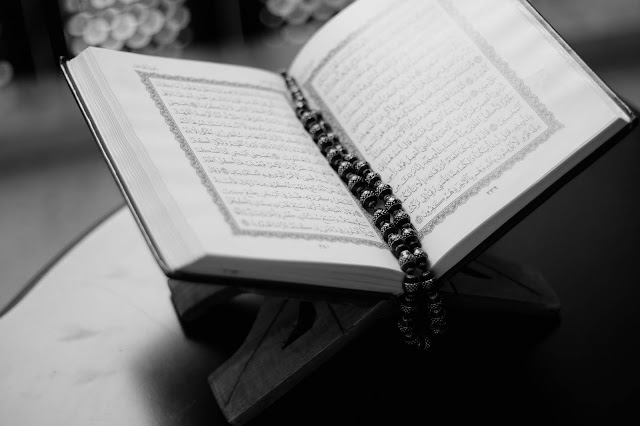 |
| Quran |
Ramadan Mubarak
As compared to the
Etymology
• 2History
• 3Important dates
o 3.1Beginning
o 3.2Night of Power
o 3.3Eid
• 4Religious practices
o 4.1Fasting
§ 4.1.1Suhoor
§ 4.1.2Iftar
o 4.2Charity
o 4.3Nightly prayers
o 4.4Recitation of the Quran
• 5Cultural practices
• 6Observance rates
• 7Laws
• 8Health
• 9Crime rates
• 10Ramadan in polar regions
• 11Ramadan in Space
• 12Employment during Ramadan
• 13See also
• 14Notes
• 15References
Etymology
The word Ramadan derives from the Arabic root ramiḍa or ar-ramaḍ "scorching heat," "dryness."[27]
 |
| Mosque |
History
Chapter 2, Verse 185 in Arabic.The month of Ramadan Mubarak is that
Muslims hold
Although Muslims were first commanded to fast
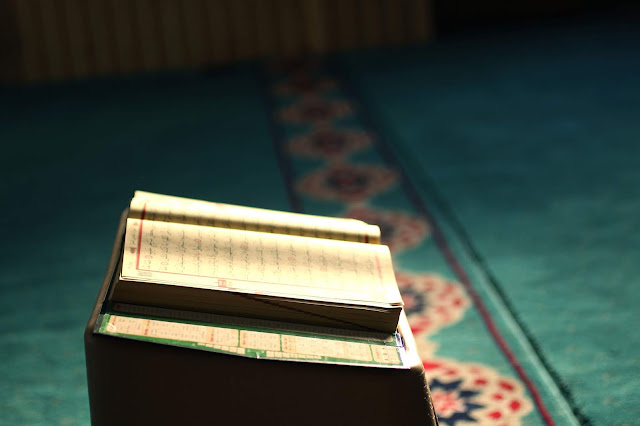 |
| Quran |
Important dates
The first and last dates of Ramadan are determined by the lunarBeginning
Ramadan Mubarak's beginning dates between Gregorian years 1938 and 2038.
Because Hilāl, the crescent moon, typically occurs approximately
Night of Power
Main article: Laylat al-QadrLaylat al-Qadr
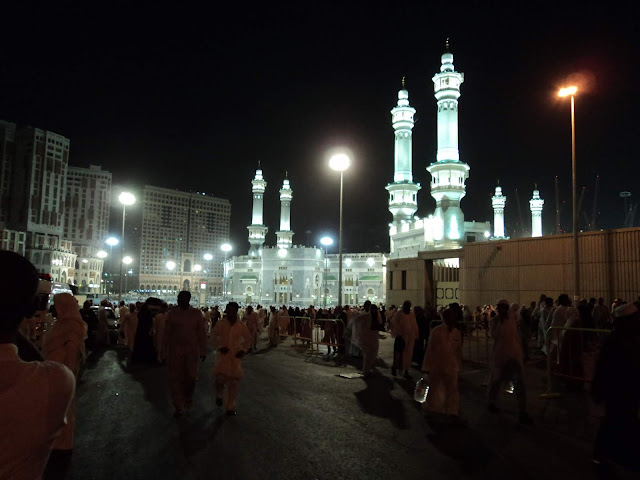 |
| Night Of Power |
Fasting
Main article: Fasting In Ramadan
Ramadan MubarakExemptions to fasting include travel, menstruation, severe illness, pregnancy, and breastfeeding. However, many Muslims with medical conditions[vague][who?]
Suhoor
Main article: Suhoor
Each day, before dawn, Muslims observe a pre-fast meal called the suhoor. After stopping
Iftar
Main article: Iftar
At sunset, families break the fast with the iftar, traditionally opening the meal by eating dates to commemorate Muhammad's practice of breaking the fast with three dates.[52][53][citation needed] They then adjourn for Maghrib, the fourth of the five required daily prayers, after which
Social gatherings,
In the
Over time, the practice of iftar has involved in banquets
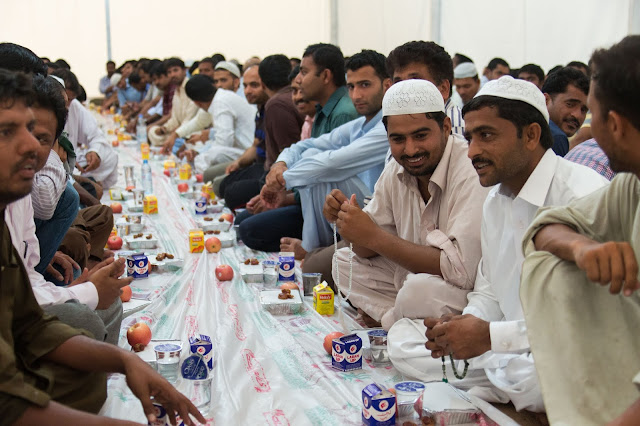 |
| Fasting |
Ramadan Mubarak in polar regions
The length of the dawn to sunset time varies
 |
| Polar Regions Ramadan Mubarak |
Ramadan Mubarak in Space
Muslim astronauts in space schedule religious practices
Employment during Ramadan Mubarak
MuslimsEid
Main articles: Eid al-Fitr and Eid prayersThe holiday of Eid al-Fitr (Arabic:عيد الفطر), which marks
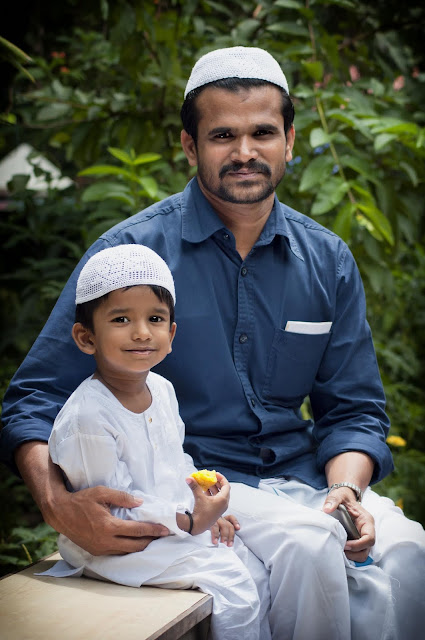 |
| Eid |
Final Words We Hope This Article Helped You To Know About Ramadan Mubarak.
Also, See
- Night Of Power(Laylat al-Qadr)
- Fasting In Ramadan
- Eid al-Fitr



Keep It Up Bro
ReplyDeletehttps://ramadanmubarikof2020.blogspot.com